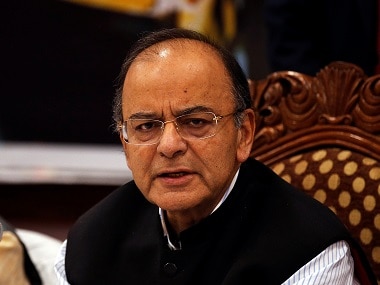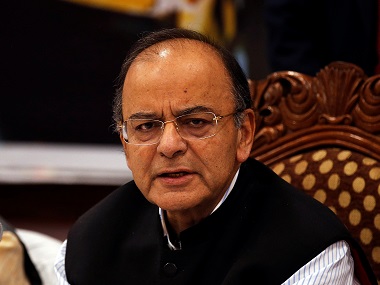Union finance minister Arun Jaitley on Saturday spoke about the reason behind Prime Minister Narendra Modi bypassing the convention of holding press conferences to communicate with the masses, and adopting the radio and social media instead to do the same. The public communication strategy adopted by the prime minister over the last five years has been the subject of much discussion in the public sphere. While releasing a book titled “Mann Ki Baat-A Social Revolution on Radio” at the National Media Centre in Delhi on Saturday, Jaitley said that the prime minister’s communication strategy has been shaped by his experience with the media during the 2002 Assembly election in Gujarat. “I was sent to Gujarat to direct the election campaign on behalf of the party. The media was not very friendly with him (Modi). Rather, it had adopted an aggressive stance against him. It was felt that agenda was replacing news. In such a situation, you cannot talk to the people through conventional media. It was required to rise above the heads of the intermediaries to talk to the people directly. Even today, very few people understand this strategy,” he said. [caption id=“attachment_5242341” align=“alignleft” width=“380”]
 File image of Union finance minister Arun Jaitley. Reuters[/caption] In the 2002 Gujarat Assembly Elections which took place months after riots in the state, the then chief minister Narendra Modi was the focal point of a heated debate around secularism and communalism. The BJP registered a victory in that election. Jaitley also said that in an age when the “media attempts to set the agenda of the nation rather than disseminating news”, public figures often have to create mechanisms for public communication. He added that Modi selected the medium of the radio for this purpose, and introduced the “Mann Ki Baat” programme to address the public directly. “He used the radio to communicate with the public about governance. No political subject was addressed in the talks. He addressed issues which had been of importance in the previous month, or were expected to be of importance in the upcoming days. People used to send questions and suggestions to him, which were studied and answered in a crisp manner,” Jaitley said. The finance minister made a mention of the strategy that Mahatma Gandhi used to communicate news about the Dandi march to Indians. “At the time, English-language newspapers were by and large run by British editors. The radio, then a recently-introduced medium, was also owned by them. When Gandhi announced his salt satyagraha, an English newspaper mocked it by asking whether the British would run away from India if Gandhi made salt from sea water. But what was built up during the march was electrifying. Perhaps the Dandi March was one of the greatest acts of political communication,” he said. Jaitley also said, “Mahatma Gandhi was not a forceful speaker. But he spoke in very simple language to communicate his thoughts, and the footprints of his thoughts have remained for years.” Remarking that there are few politicians who can directly talk to the people, he said, “I am giving the example of Gandhi because he taught political strategy when media was mostly owned by foreigners.” The book released on Saturday by the finance minister is a compilation of 50 episodes of “Mann ki Baat” that were broadcast on All India Radio. The book, collated by the BlueKraft Digital Foundation, also sheds light on research and feedback related to the programme.
File image of Union finance minister Arun Jaitley. Reuters[/caption] In the 2002 Gujarat Assembly Elections which took place months after riots in the state, the then chief minister Narendra Modi was the focal point of a heated debate around secularism and communalism. The BJP registered a victory in that election. Jaitley also said that in an age when the “media attempts to set the agenda of the nation rather than disseminating news”, public figures often have to create mechanisms for public communication. He added that Modi selected the medium of the radio for this purpose, and introduced the “Mann Ki Baat” programme to address the public directly. “He used the radio to communicate with the public about governance. No political subject was addressed in the talks. He addressed issues which had been of importance in the previous month, or were expected to be of importance in the upcoming days. People used to send questions and suggestions to him, which were studied and answered in a crisp manner,” Jaitley said. The finance minister made a mention of the strategy that Mahatma Gandhi used to communicate news about the Dandi march to Indians. “At the time, English-language newspapers were by and large run by British editors. The radio, then a recently-introduced medium, was also owned by them. When Gandhi announced his salt satyagraha, an English newspaper mocked it by asking whether the British would run away from India if Gandhi made salt from sea water. But what was built up during the march was electrifying. Perhaps the Dandi March was one of the greatest acts of political communication,” he said. Jaitley also said, “Mahatma Gandhi was not a forceful speaker. But he spoke in very simple language to communicate his thoughts, and the footprints of his thoughts have remained for years.” Remarking that there are few politicians who can directly talk to the people, he said, “I am giving the example of Gandhi because he taught political strategy when media was mostly owned by foreigners.” The book released on Saturday by the finance minister is a compilation of 50 episodes of “Mann ki Baat” that were broadcast on All India Radio. The book, collated by the BlueKraft Digital Foundation, also sheds light on research and feedback related to the programme.
'Aggressive' stance of media in 2002 shaped Narendra Modi's strategy not to hold press conferences, says Arun Jaitley
Kangkan Acharyya
• March 2, 2019, 20:56:30 IST
The public communication strategy adopted by Narendra Modi over the last five years has been the subject of much discussion in the public sphere.
Advertisement
)
End of Article